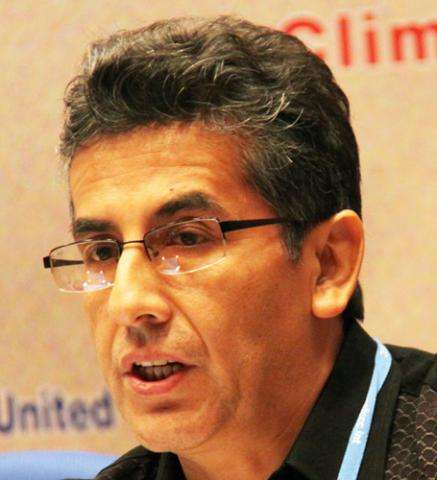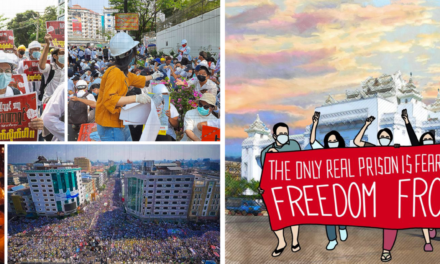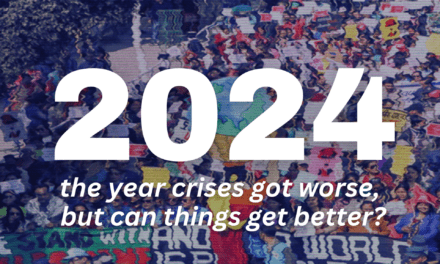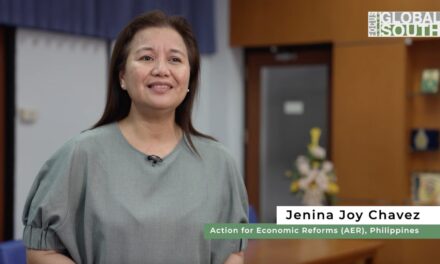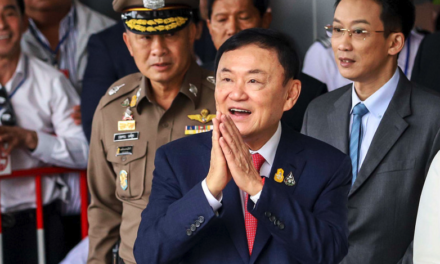Pablo Solon is the current Executive Director of Focus on the Global South
by Robin van Wechem
He wrote one of the most progressive laws for nature conservation. He organized the first international climate conference for common people. And now he wipes the floor with the UN proposal for a ‘green economy’. The Bolivian Pablo Solón thinks we should treat nature with more respect.
On the windy rooftop veranda of the Transnational Institute in Amsterdam, the former ambassador to the UN slides his empty glass across the wooden picnic table. “Just imagine I sell this glass to someone and it becomes a popular item, more people want one. The price goes up and I make ten, which I can sell at a profit.” He lifts up the glass, puts it down and makes an expansive gesture as if he has lined up ten glasses. “But with the new ‘green economy’ system you pay me not to break a glass. That’s ridiculous.”
Indignantly Solón vents his criticism on the most prominent point of the Rio+20 agenda, the UN climate conference that starts next week in Rio de Janeiro. “This top conference only promotes the green economy. There is no evaluation of conferences held twenty years ago, no attention is paid to the measures taken back then and certainly not to how they were implemented. Moreover, there is no clear definition of the concept ‘green economy’ anywhere. If you ask authorities what it is, they all give you their own personal interpretation.”
And Solón knows who to confront to get a reaction. For more than fifteen years he has been walking the corridors of large conference centres, increasingly with one goal: to serve the interests of Mother Earth. In 2010, as Bolivian ambassador at the UN, he drew applause with his resolution on nature’s rights. In that same year his country organized the World’s Peoples Conference on Climate Change in the city of Cochabamba, where the local inhabitants rebelled against the privatization of the water supply.
“During the protests in Cochabamba I realized that it wasn’t just about water, but the whole ecosystem. ‘Water is the blood of Mother Earth,’ say the indigenous tribes of Bolivia. From them I learned how important it is to look at nature as a whole. Scientists have been saying the same thing for years. NASA for example, speaks of the earth as a living system. To convince other countries in the UN that the resolution for the rights of nature was no religion, I had to produce scientific proof.”
The perception of nature that lies at the basis of documents for Rio+20, is totally wrong according to Solón. “If you examine the text of the conference, you’ll see an important switch has occurred. Both the UNEP report and the conference’s provisional final declaration confirm we are heading for an environmental crisis. Strangely enough, both texts cite the cause as being the lack of market mechanisms in nature. Their solution: capitalize nature.”
Of course, he adds immediately, that has been happening for a long time – natural resources have been exploited since time immemorial. “What’s new is that it no longer concerns actual products but the functions of nature. There’s never been a price tag on the capacity of a forest, a piece of land or ocean to store CO2, or the capacity of a source to provide water. By making elementary processes marketable, we surrender the earth and its eco system to the whims of speculators.”
While it’s so important that we live in harmony with nature. “I’m not saying that you can’t cut down any more trees or mine for tin, but that you must replace what you have used. Plant new trees, invest in the population through education. Adopt the Tobin tax, a levy on financial transactions and use the proceeds to protect nature.”
REDD is the biggest affront to the advocate for environmental rights, the UN programme designed to curb CO2 emission caused by deforestation. “REDD has a perverse logic in which the good guy gets nothing and the bad guy is rewarded for his destructive behaviour. Indonesia for example, receives REDD certificates to combat deforestation. If one year Indonesia fells 1,7 million hectares of forest and the next year ‘only’ 1,5 million, then it’s allowed to sell the 200 thousand hectares it didn’t cut down.”
In the same way, rich countries or large companies have a contamination permit which allows them to keep emitting CO2, while notorious deforesters are rewarded for less rampant felling of trees. “Brazil has taken an advance of this by felling an increasingly large amount of virgin forest, so that it can cash in when REDD finally takes effect,” says Solón. “Instead of preserving the forest as a whole and reducing pollution, we’re selling trees that have not been cut down to store CO2 that has yet to be emitted.”
He shivers inside his coat, that he was forced to buy because he was ill prepared for the Dutch summer. “Look,” he continues, “this is what’s going to happen. The big companies, the traders in C02, are the big winners here. There is no creation of value in this system, it’s pure fiction. In fact, the price of C02 rights will only diminish, because there are so many certificates in circulation. The current Clean Development Mechanisms at least still contain an obligation to plant new trees. REDD only rewards the not cutting down of existing trees.”
In addition, the necessary infrastructure for REDD is still at a very early stage. “Many countries have practically no information about which trees their forests contain, how old they are, how much CO2 they can absorb, etc. Furthermore, there are scarcely any data about emissions and deforestation. So before REDD can even come into force, a whole measuring process has to be carried out at an enormous cost. Money that might just as well go directly to forest preservation.”
Last year Bolivia as first country in the world, passed a law that guarantees the intrinsic rights of nature. Around the same time, Solón tendered his resignation to the Morales government. “There has to be consistency between what we decide at an international level and execute at a national level. In my opinion the Bolivian government became inclined towards an increasingly traditional vision of development. Too little was being done to protect environmental rights.”
The ex-climate diplomat now works for the Global South think tank, that stands up for the rights of southern countries. Despite years of successive disappointments, he still hasn’t thrown in the towel. “In many cases international negotiations yield very little, but sometimes you secure success. Take the Montreal protocol, that improved the ozone situation a great deal. International negotiations are frustrating but necessary. As isolated country there are some things you can’t solve.”
Will Rio+20 turn out to be the umpteenth cold shower? “From a government’s perspective the conference won’t be a disappointment. But if you see what they agree to in practice, the results will be somewhere between no change and a change for the worse.”

